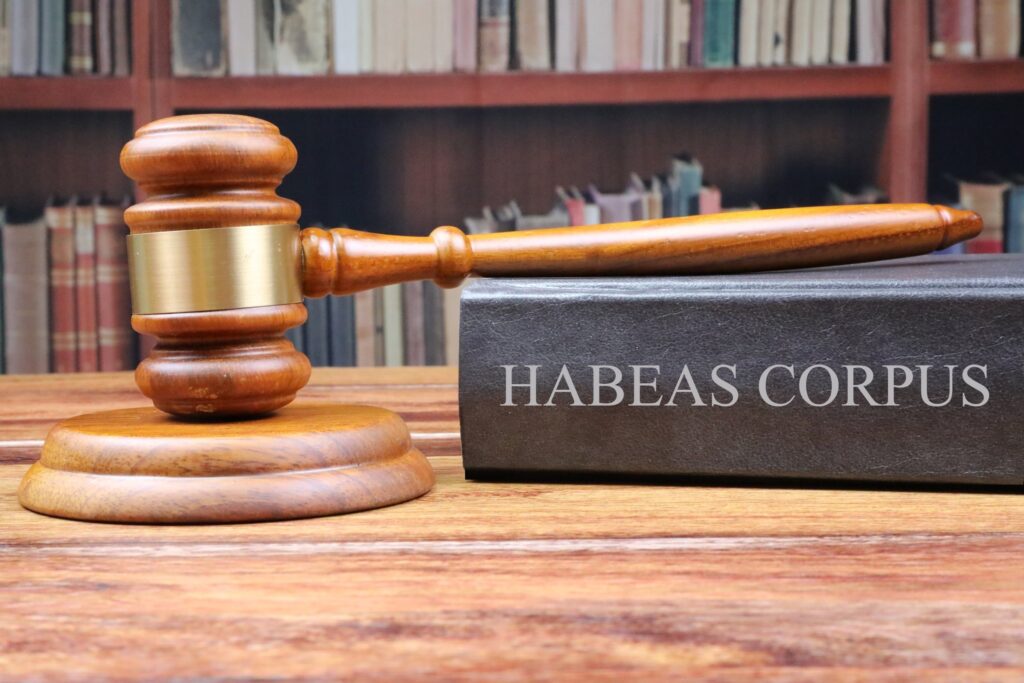Professional Attorney Insights on the Relevance of Habeas Corpus
Professional Attorney Insights on the Relevance of Habeas Corpus
Blog Article
Comprehending the Duty of a Post-Conviction Legal Representative in Looking For Justice After a Criminal Sentence
In the facility landscape of post-conviction lawful process, the duty of a post-conviction legal representative is essential in navigating the course to justice after a criminal sentence. Past the boundaries of a trial, these lawyers take part in a complex strategy intended at discovering new evidence, tough lawful mistakes, and supporting for their customers' legal rights. The ins and outs of post-conviction work require a mix of lawful acumen, investigative abilities, and critical assuming to untangle the intricacies of a situation and pursue avenues that might have been forgotten or underexplored. As the pursuit of justice extends past the boundaries of initial proceedings, the duty of a post-conviction attorney emerges as a sign of expect those seeking to rectify oppressions and recover their rights within the lawful system.
Post-Conviction Lawyer's Investigative Work
Post-conviction lawyers participate in thorough investigatory work to uncover brand-new proof, procedural errors, or transgression that can potentially result in overturning a sentence. This investigative phase is crucial in the post-conviction procedure as it aims to identify any forgotten details or legal bad moves that may have impacted the end result of the preliminary trial. Post-conviction attorneys explore instance documents, witness statements, and legal documents with a fine-tooth comb, looking for any type of discrepancies or abnormalities that might be premises for charm.
Through detailed investigation, post-conviction attorneys intend to shed light on prospective oppressions that might have occurred during the initial test. By scrutinizing every aspect of the legal process, post-conviction lawyers work relentlessly to uncover any aspects that might have affected the verdict.
Crafting Appeals and Petitions
In the pursuit of justice after a conviction, skilled attorneys diligently craft allures and petitions to present compelling disagreements for the reconsideration of lawful choices. Crafting charms and applications needs a deep understanding of the lawful system, focus to information, and strategic thinking. Post-conviction lawyers evaluate trial records, identify prospective mistakes or infractions of rights, and develop legal arguments to challenge the conviction or sentence.
When crafting a charm, attorneys focus on highlighting legal errors that may have affected the outcome of the case. They research case regulation, laws, and lawful criteria to support their arguments. Petitions, on the various other hand, might include providing new evidence that was not available throughout the test or showing adjustments in the regulation that call for an evaluation of the conviction.
Furthermore, post-conviction lawyers must abide by rigorous procedural guidelines and due dates when filing allures and requests. They should present their debates plainly and persuasively to persuade the court to grant alleviation to their clients. Through thorough crafting of charms and requests, post-conviction lawyers strive to safeguard justice for people who have been wrongfully founded guilty or unjustly sentenced.

Going After Post-Conviction Relief
Seeking alleviation after a conviction calls for a critical and thorough approach by seasoned legal specialists. Post-conviction relief incorporates a variety of lawful systems designed to test the validity of a conviction or sentence (top hawaii federal lawyers). These avenues include submitting activities for a brand-new test, going after allures, looking for writs of habeas corpus, and providing recently discovered evidence. Post-conviction lawyers play an essential role in browsing these intricate treatments, making certain that all lawful choices are explored to rectify oppressions that may have occurred throughout the test or sentencing stage.
One common kind of post-conviction alleviation is filing an application for post-conviction relief, commonly based upon claims of inadequate support of advise, prosecutorial misbehavior, newly found evidence, or constitutional basics infractions. These petitions need an extensive evaluation of the trial document, legal study, and persuasive campaigning for to convince the court to provide relief. Experienced post-conviction legal representatives possess the skills and expertise required to recognize practical lawful cases, carry out examinations, and present compelling debates to secure relief for their customers. By diligently going after post-conviction alleviation, these lawyers make every effort to correct miscarriages of justice and promote the principles of fairness and due procedure in the criminal justice system (Lawyer).
Using Forensic Proof
When testing a sentence or sentence, the calculated application of forensic proof can be a powerful device in post-conviction legal proceedings. Forensic evidence encompasses a variety of scientific techniques used to investigate crimes and establish facts in court. Post-conviction lawyers can leverage forensic evidence to test the legitimacy of sentences by providing new scientific searchings for that were not readily available during the original trial.

Participating In Sentence Modifications
Post-conviction attorneys may discover the possibility of sentence adjustments as a legal opportunity to attend to out of proportion or unjustified sentences passed on in criminal cases. Sentence adjustments include seeking changes to the terms of a defendant's sentence after a conviction has taken place. These modifications can consist of lowering the size of a sentence, modifying the sort of punishment enforced, or discovering different sentencing alternatives.
Post-conviction attorneys can go after sentence adjustments through various lawful devices, such as submitting activities for sentence decrease, appealing for caring release, or negotiating plea bargains for minimized sentences. They need to thoroughly evaluate the circumstances of the instance, examine the legal grounds for seeking a modification, and present engaging disagreements to the court supporting the requirement for a revised sentence.
Participating in sentence alterations needs a complete understanding of criminal legislation, sentencing guidelines, and the specific treatments involved in looking for post-conviction alleviation. Post-conviction lawyers play a crucial duty in promoting for reasonable and just end results by difficult sentences that are unduly harsh or do not line up with the concepts of justice.
Conclusion
Finally, the duty of a post-conviction attorney is essential in looking for justice after a criminal conviction. With investigative job, crafting appeals and requests, pursuing post-conviction relief, utilizing forensic evidence, and participating in sentence adjustments, these attorneys play a vital function in supporting for their clients and making sure that their rights are maintained within the criminal justice system. Their commitment and competence are essential in navigating the intricacies of post-conviction proceedings and accomplishing a reasonable end result for individuals dealing with criminal sentences.
Report this page